The 2024 residency programme at G.A.S. Foundation began with the arrival of Victor Svensson and Eric Oetterli, Retail Management bachelor's thesis students from the Stockholm School of Economics. Notably, this marked the second cohort of the Yinka Shonibare Thesis Scholarship initiated in 2023 in partnership with Art Initiative, Misum, Mistra Center for Sustainable Markets, and Stockholm School of Economics. During their residency, they explored the intricacies of Nigeria's cryptocurrency adoption, examining its ramifications on retail, economic growth, and financial inclusion. From their base at G.A.S. Lagos, they conducted a comprehensive series of in-person interviews with local retailers. Victor and Eric collaborated closely with a consultancy firm to create and circulate a survey garnering over 800 responses that uncovered invaluable insights into the landscape of cryptocurrency adoption in Nigeria.
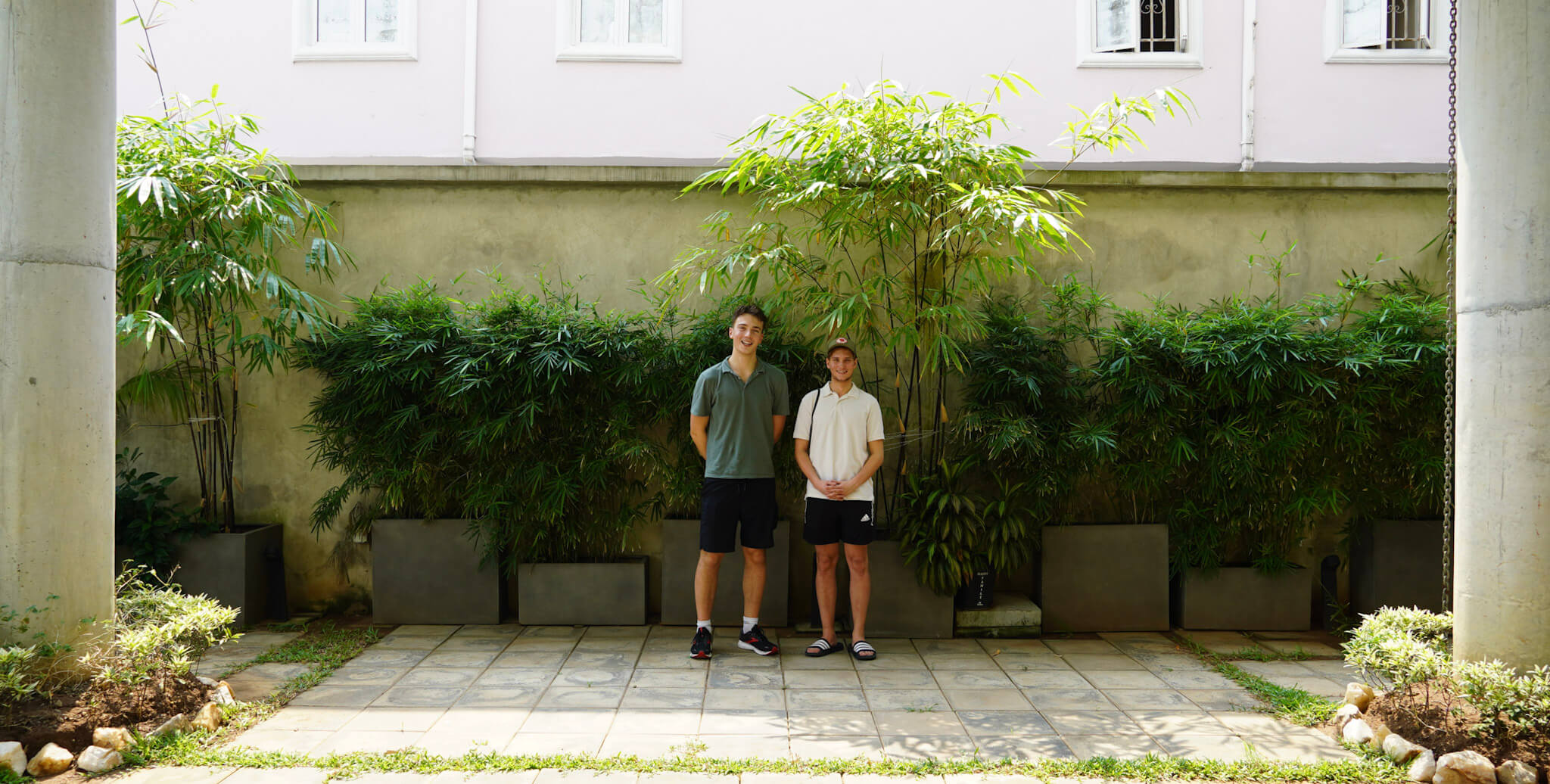 Eric (L) and Victor (R) at G.A.S. Lagos during their residency.
Eric (L) and Victor (R) at G.A.S. Lagos during their residency.
On 26th January the SSE residents hosted an evening dedicated to the fusion of art and blockchain technology that brought together a panel of contributors, including specialised artists, and practitioners, working with blockchain from the Nigerian creative space. Together, the panel discussed the opportunities within their ecosystem that can be leveraged in artistic practices.
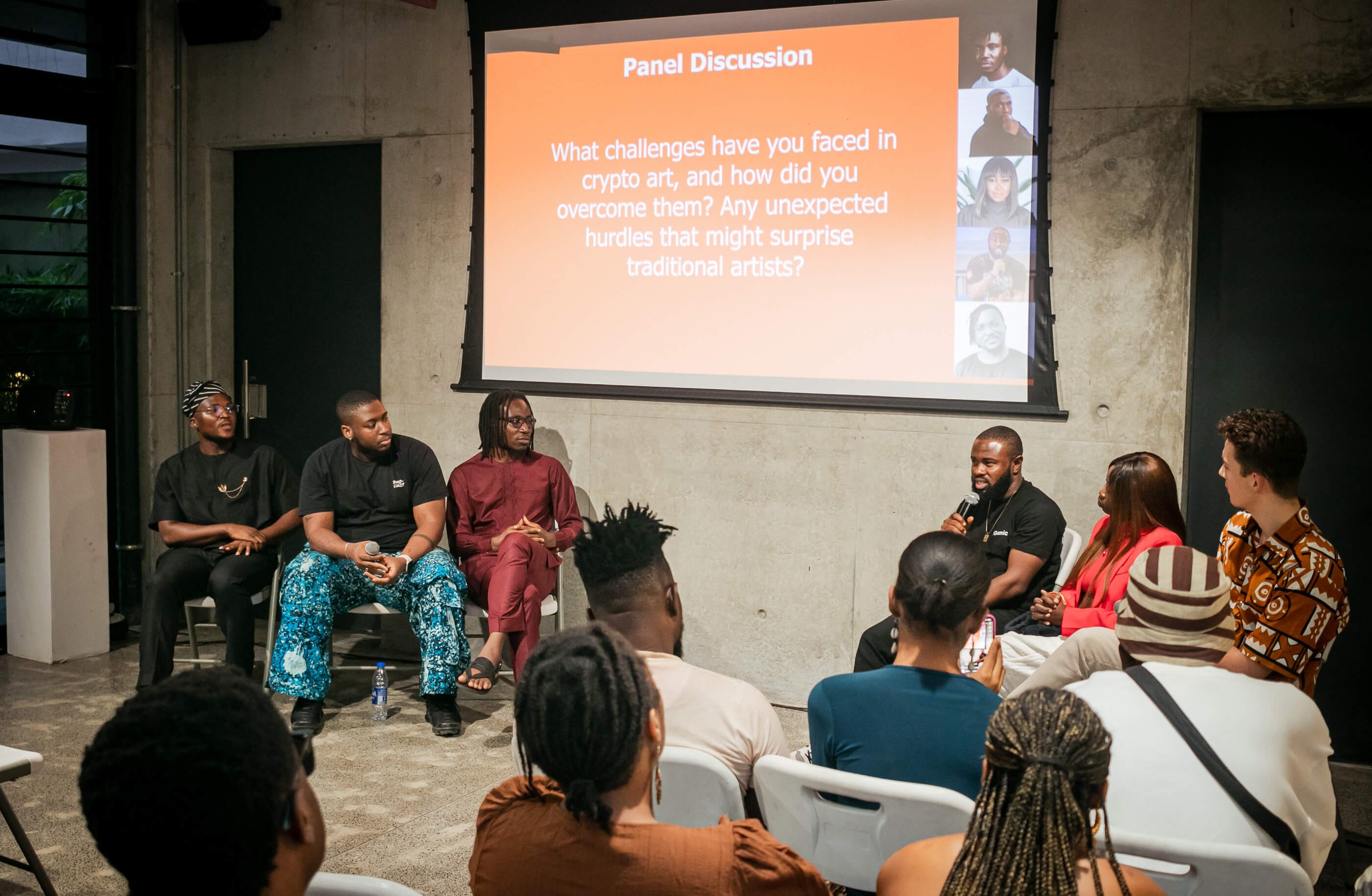 Panellists at the Artistic Empowerment Through Blockchain Technology event: Odion Tobi, Anthony Azekwoh, Osinachi, Chike Okonkwo, Jekein Lato-Una and Eric Oetterli.
Panellists at the Artistic Empowerment Through Blockchain Technology event: Odion Tobi, Anthony Azekwoh, Osinachi, Chike Okonkwo, Jekein Lato-Una and Eric Oetterli.
The event was followed by the arrival of Nolan Oswald Dennis, the first returning G.A.S. resident. Nolan used this condensed time in Lagos to immerse themselves in preparations for the upcoming Lagos Biennial. The period served as a crucial phase for fine-tuning details of the Traces of Ecstacy pavilion they'd designed, which went on to showcase newly commissioned works by a collective of artists including former G.A.S. Residents Evan Ifekoya and Raymond Pinto. Additionally, this period allowed Nolan to present the research and conceptual framework behind the pavilion design at the Traces of Ecstacy Symposium, part of the offsite Biennial events programme. Beyond Lagos, Nolan conducted a field trip to Ibadan to visit the New Culture Studio and Dominican Chapel. Here, their research agenda involved exploring the Mbari Artists and Writers Club, and other movements that defined Nigeria's modernist era.
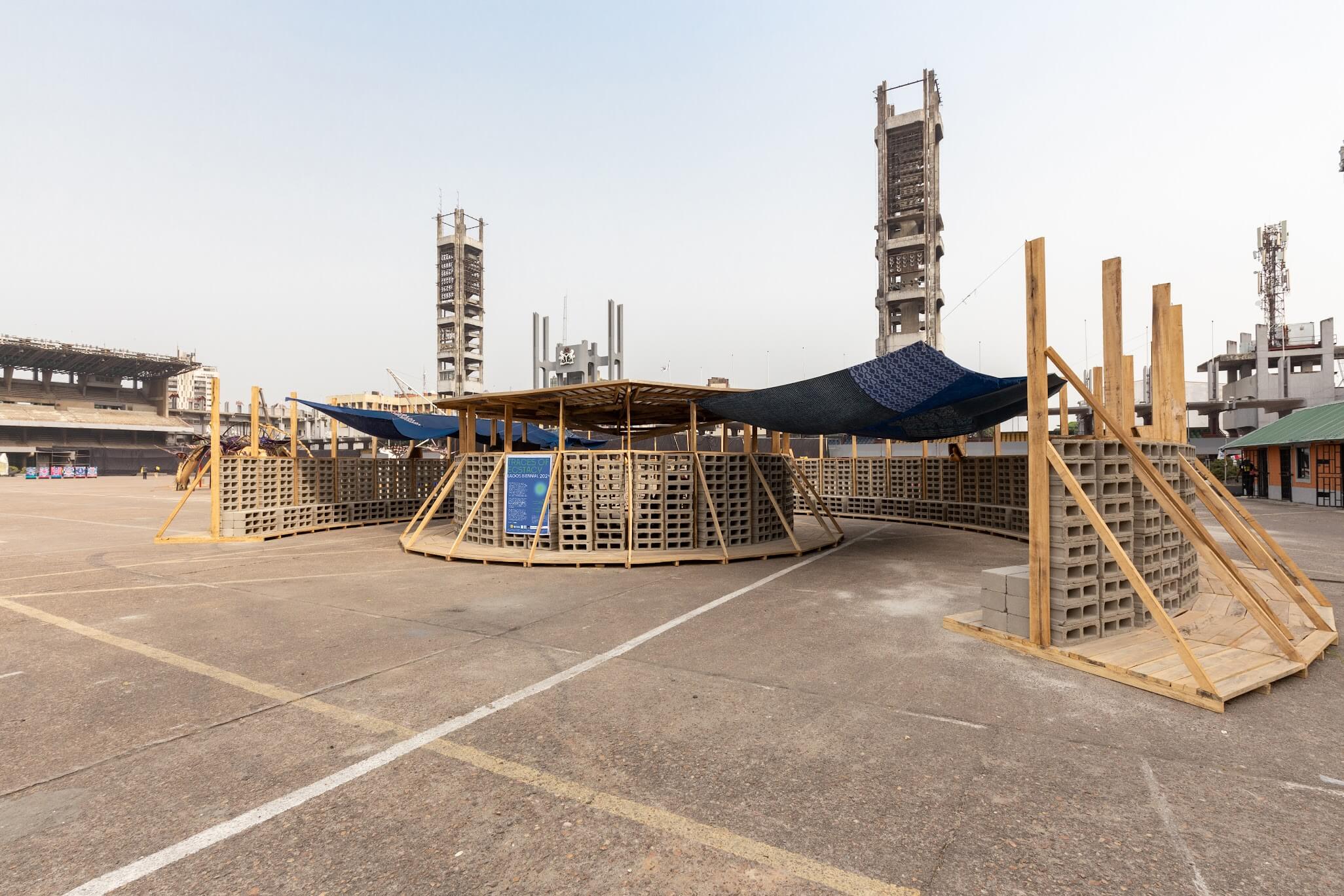 The Traces of Ecstasy pavilion designed by Nolan Oswald Dennis at Tafawa Balewa Square for Lagos Biennial. Photographer: Amanda Iheme. Image courtesy of KJ Abudu.
The Traces of Ecstasy pavilion designed by Nolan Oswald Dennis at Tafawa Balewa Square for Lagos Biennial. Photographer: Amanda Iheme. Image courtesy of KJ Abudu.
Nolan was joined by fellow Lagos Biennial and traces of Ecstasy performance artist and former G.A.S. Resident Raymond Pinto. The residency provided them with the opportunity to further deepen their knowledge of Yoruba cultural traditions and practices and diversify their practice through studio explorations into mediums such as printmaking, and research into wildlife conservation. The latter led Raymond towards hosting a panel discussion with Chidi Mogbo, the founder of the Green Fingers Foundation at G.A.S. Lagos. The evening leveraged Pinto's practice to provoke conversations on iconography, ecology, sustainability, wildlife conservation, and preservation. It provided a lens through which the audience could explore the intersection between the embodied emotions inherent in a wildlife-centric ecological practice and a movement-based arts practice whilst drawing inspiration from African material culture.
The Lagos Biennial led Raymond to the debut of diffractions, a roving performance through the Traces of Ecstasy pavilion created in collaboration with sound artists, Ayomide Kalejaiye (SAROSAYÉ) and Xavier Emmanuel.
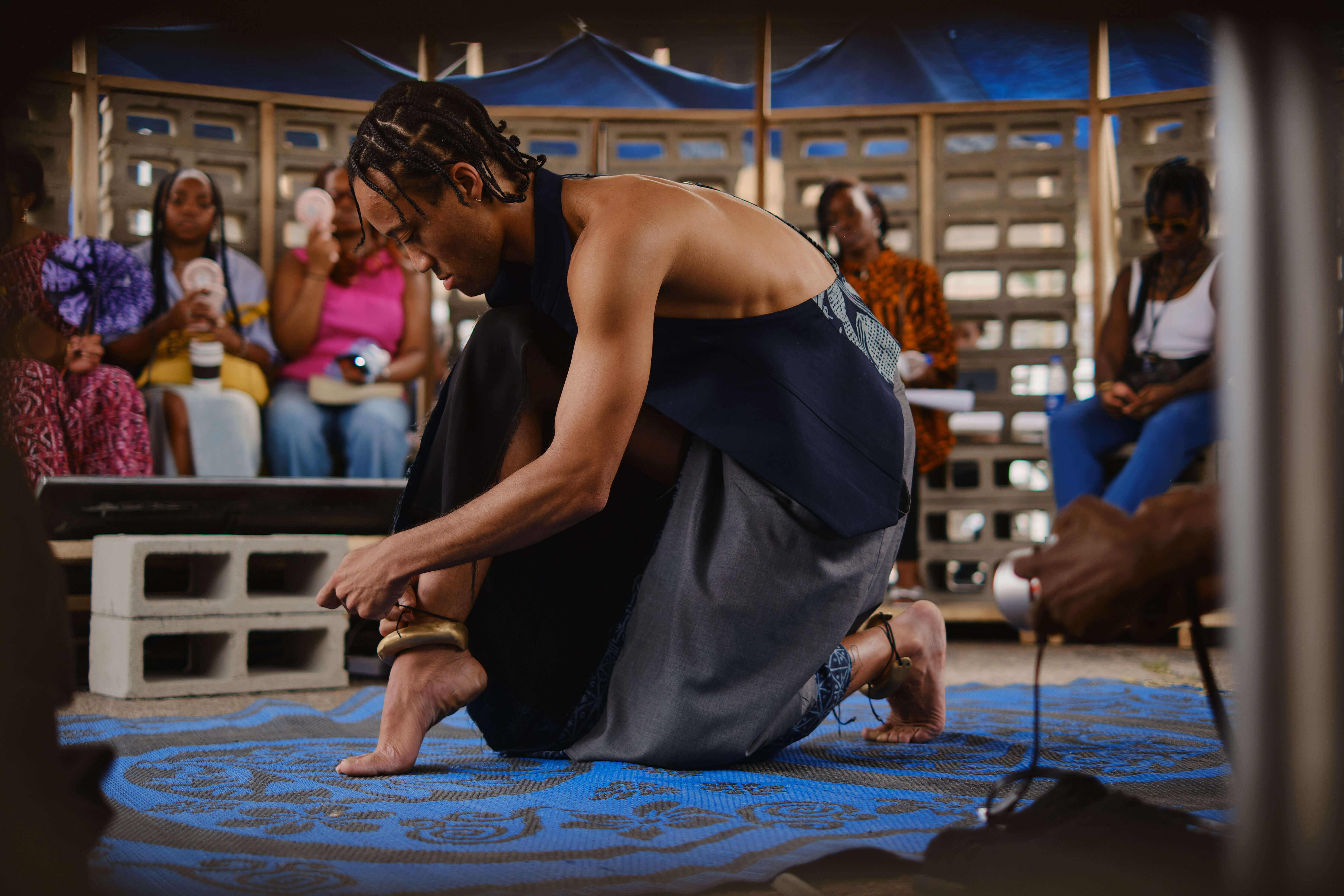 Raymond Pinto's performance diffractions at Lagos Biennial.
Raymond Pinto's performance diffractions at Lagos Biennial.
The final G.A.S. resident to arrive within this period was Rafael Kouto, a versatile practitioner working across the fields of fashion, design, research, and materiality. His residency supported by the Swiss Arts Council, Pro Helvetia, spanned both G.A.S. locations and included a period of research in Ibadan. He spent his time actively collaborating with local artisans, exploring textile techniques like embroidery, dyeing, and weaving, delving into circular fashion methodologies, and building on groundwork developed during a preceding residency in Ghana.
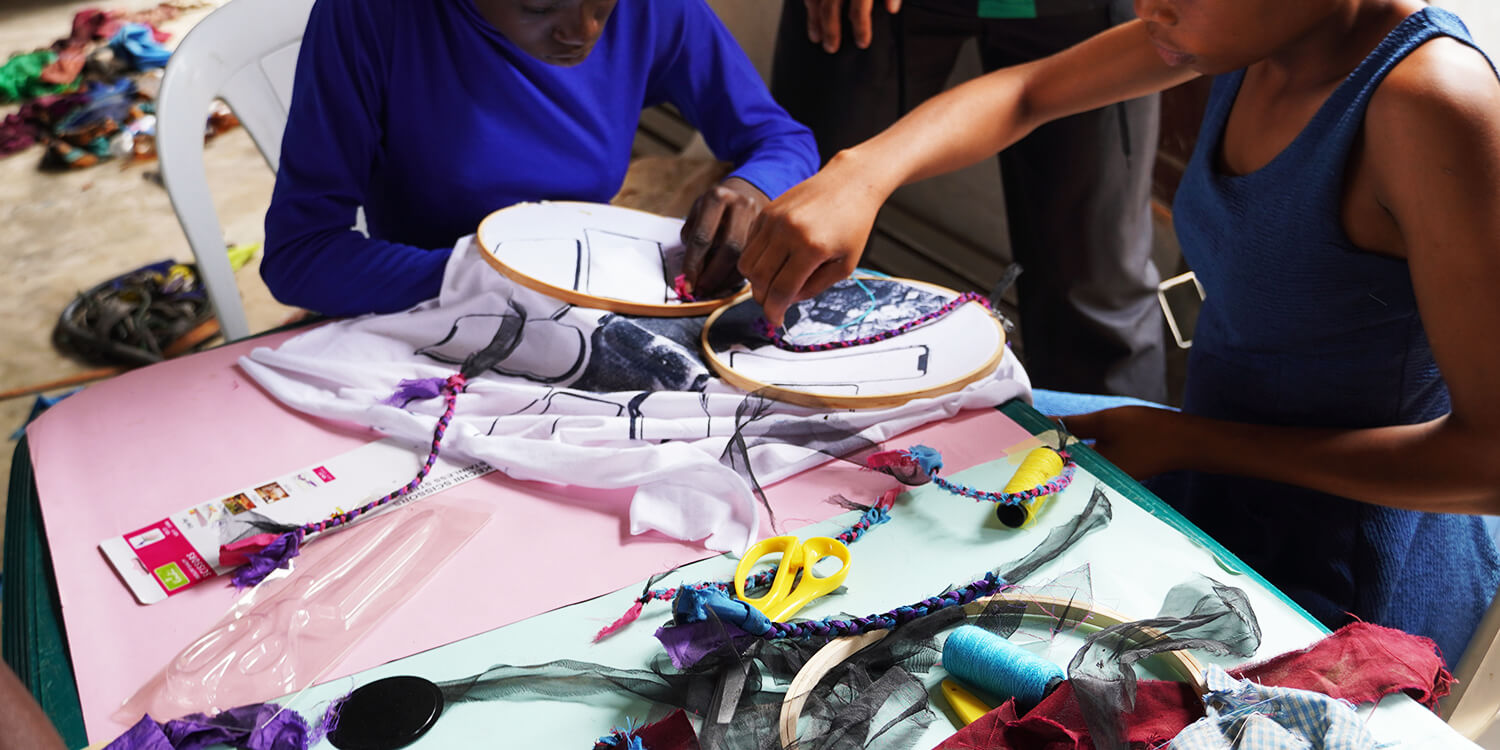 Workshop participants learn embroidery and applique techniques during the Circular Heroes workshop hosted in Bariga with Eran Jije Project.
Workshop participants learn embroidery and applique techniques during the Circular Heroes workshop hosted in Bariga with Eran Jije Project.
To conclude his residency Rafael hosted a series of circular fashion workshops. The first was held offsite in Bariga, a community characterised by adjacent landfills that provide inhabitants with building materials and income streams through recycling. Rafael collaborated with Peter D. Abayomi of the Eran Jije Project, whose work activates the Bariga community through music, dance, and environmental awareness activations. Together they lead a session with 15 young people centred around learning embroidery, applique, and weaving techniques and experimentally applying them along with other waste materials to pre-made printed textiles and banners. The workshop was repeated at G.A.S. Lagos with a cohort of local fashion, textiles, and crafts practitioners.
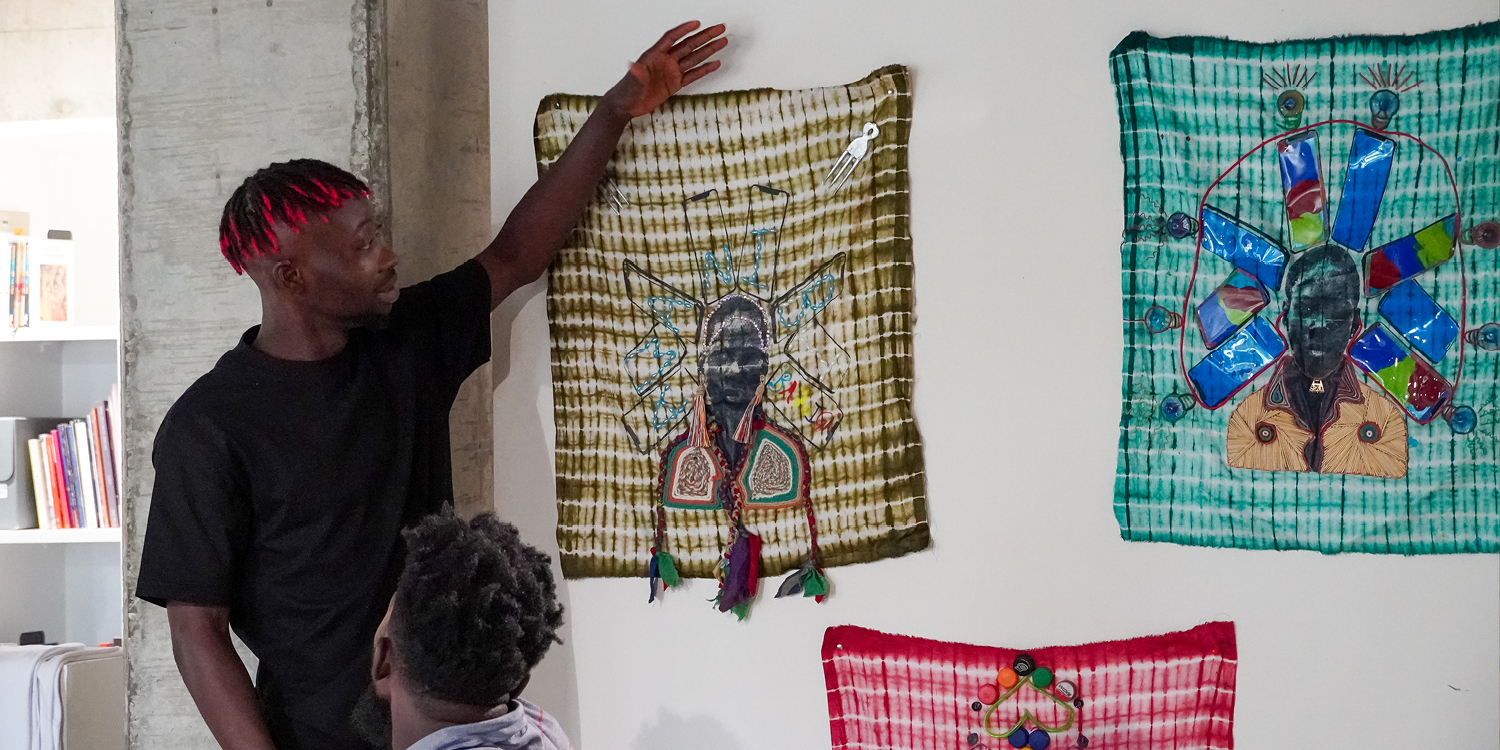 Workshop participants presenting their final textile banners at the G.A.S. Lagos Circular Heroes workshop led by Rafael Kouto.
Workshop participants presenting their final textile banners at the G.A.S. Lagos Circular Heroes workshop led by Rafael Kouto.